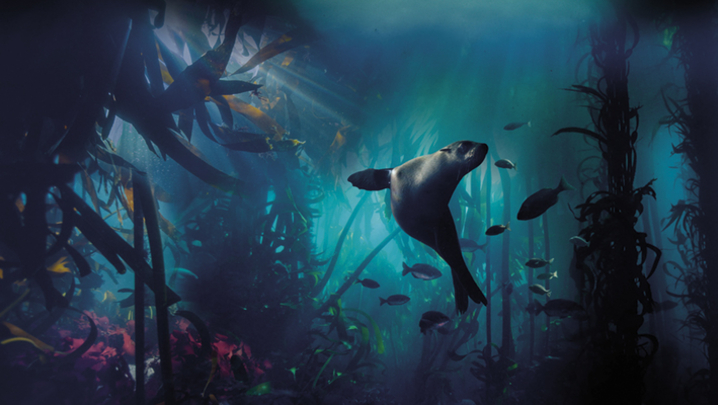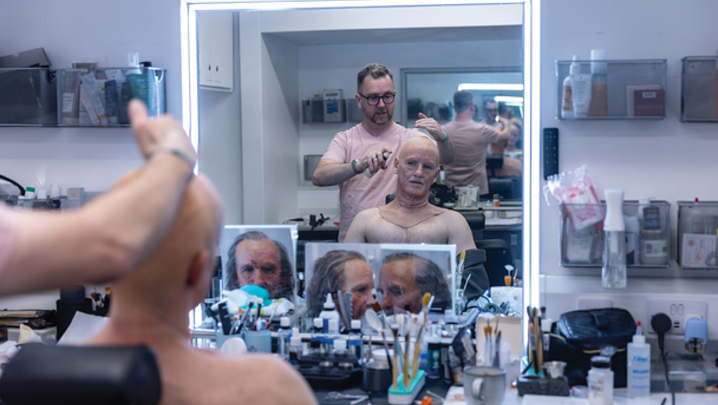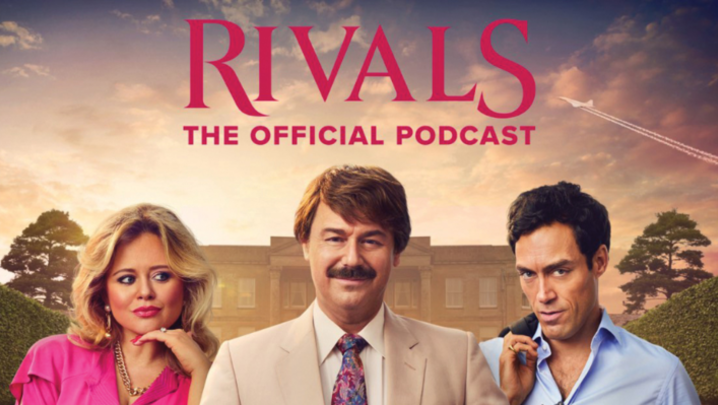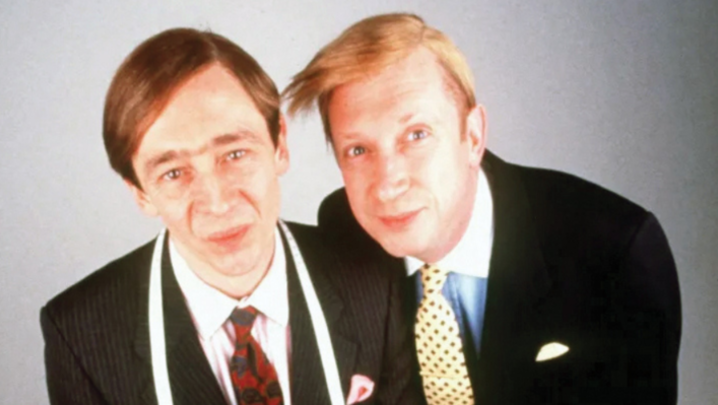Steve Clarke talks to Mark Linsey as he prepares to launch BBC Studios as a commercial organisation.
If Mark Linsey is intimidated by the thought of launching one of the most far-reaching and challenging reforms in the BBC’s 90-year history he is not letting on.
He must be used to dealing with fragile egos and temperamental types from the showbiz end of TV – for seven years, he ran BBC Entertainment. But, compared with getting BBC Studios up and running as a successful commercial entity, keeping high-profile, high-earning stars happy must be a breeze.
Not that you’d know it from Linsey’s body language or demeanour as he looks up from his open-plan desk at White City’s Broadcast Centre on a wintry Monday morning. “Would you like a hot drink?” he asks, ever the PR man.
Cheerful and casually attired, he might have recently returned from a Sunday post-lunchtime family stroll. He seems that relaxed.
As we are escorted into an adjacent meeting room the quietly-spoken and unobtrusive Linsey makes small talk about being back at work after Christmas and having his teenaged children all at home over the festive holiday; he has three boys – two 19-year-old twins and a 15-year-old. His wife is now a yoga teacher, after giving up her job in TV to have a more flexible life to accommodate bringing up a family.
Linsey is the consummate professional, a TV veteran who’s worked not only at the BBC, but also at ITV (for Central and LWT) and the independent sector (at entertainment specialists Tiger Aspect and Hat Trick).
Does he consider himself to be a creative or a business leader? “Interesting question,” he muses. “I would say I am a creative leader who has a good sense of business... and a good sense of what works commercially.”
He will, undoubtedly, need to demonstrate this commercial acumen if BBC Studios is to become the force envisioned by Director-General Tony Hall. Some cynics regard the coming of a market-facing BBC Studios as the beginning of the end for in-house production at the BBC.
But let’s hope the initiative is, instead, the start of a brave new venture that will help insulate the corporation against the biting winds of competition and even give impoverished Auntie a much-needed new revenue source.
Linsey was appointed director of BBC Studios following his predecessor Peter Salmon’s abrupt and unexpected departure early last year. He gives every impression of relishing the opportunity to make broadcasting history.
“To lead a production entity is one of the most exciting jobs in television,” he says. “When you look at the range of programmes we’ve got here… we ended last year on a high, with things such as Strictly and Planet Earth II.…
“It’s the sheer range of programmes that means I’ve got one of the most exciting and rewarding jobs in TV.”
Few could deny that, creatively, BBC Studios continues to score. Last year, it won an unprecedented 29 prizes, including nine RTS awards and six Baftas.
But, with the end of any guarantees that BBC shows will be made in-house, Linsey is charged with overseeing nothing less than a cultural revolution.
He looks certain to end up firing quite a few of his colleagues. Already, around 300 jobs are going and more losses are likely in the coming months.
There is nothing, in theory, to stop all of the BBC’s flagship productions – apart from those in sport, news and current affairs and children’s – moving to the independent sector by the end of the current, eight-year Charter period.
In return, BBC Studios is free to pitch and bid for commissions from third-party broadcasters and content platforms, as well as, of course, for the BBC’s own outlets.
In this sink or swim world, what keeps the apparently unflappable Mark Linsey awake at night? “The most worrying aspect is competitive tendering. I think that having a 100% of your titles up for competition is extremely challenging for us.
“We want to win all of those titles but, in order to do that, we have to put in a lot of creative energy… and we are competing with indies who are also expending a lot of creative energy.
“Is it the best thing that, as an industry, we will be putting a lot of creative energy into competing over something like Antiques Roadshow, Countryfile or EastEnders?”
It must be stressed that none of these shows is out for tender yet: ones that are include Songs of Praise and Holby City, plus programme ideas for Horizon. Who knows, perhaps Linsey’s empire will retain the lion’s share of BBC commissions – earlier this month it secured A Question of Sport.
It’s one thing, he argues, for shows that are past their peak – he’s not naming names – to be put on to the market, but when a programme is in rude health, it makes no sense at all. “If you take Strictly Come Dancing, it’s getting its highest audience figures ever. It’s highest AIs ever. Is it a good use of all of our creativity to be competing over Strictly Come Dancing when the audience loves it?” he asks of what, for now, is a hypothetical situation. “That is a challenge. It does take a lot of time because, obviously, we want to win these tenders. That does concern me.”
Even sceptics acknowledge that, while Linsey’s experience gives him what it takes to run a successful producer (the kind of fleetness of foot necessary to compete head-to-head with a thriving and well-resourced indie), they think that the BBC’s “instinctively top-down” culture could hamper the project.
“There is a nervousness about the BBC ‘brand’ that is attached to Studios and I think that will hobble them when it comes to competing with genuinely commercial entities,” suggests an independent producer who is a regular BBC supplier.
He adds: “Anyone who has run a production company knows that the successful ones have been those with creative entrepreneurs at their head. And yet the BBC seems to have deliberately gone the other way and put business managers in the key positions.
“I know some of these people and they are clever but they are not creative leaders. That seems to me to put these divisions at a massive disadvantage compared with the creatively led competition.”
Linsey denies this and is proud of the team he has assembled: “I think we’ve got the right commercial and management leaders.”
Under him sit three genre directors: Lisa Opie (factual, including natural history), Roger Leatham (entertainment, music and events) and Nick Betts (scripted). “The three of them have commercial and business skills,” he insists.
Most appointments are now filled, says Linsey, adding: “You can’t be complacent. You are always in the market for an outstanding creative or an outstanding business winner.
“Our business plan is to support all genres. Yes, we want to be commercially successful in our drama, our fact ent and our entertainment formats, but we also want to be reputationally successful in our specialisms, particularly in factual but also in drama.”
He continues: “We are moving from a public service world into a more commercial world. That means we need to be more nimble, more flexible and make sure that we give our teams the tools they need to be efficient and commercial.
“That’s how I’ve approached it. I’ve brought in a team who have the commercial nous to lead and to give us the expertise that we need to be commercially efficient and have a foundation that is commercially sound.”
Linsey stresses that he is “trying to make the business as flat as possible so that… there is real accountability within the business. There’s real autonomy, so people are taking responsibility for what they do. I’m after fewer management layers.
“Inevitably, if we’re to operate in a world where there is no 50% guarantee, where we have the uncertainty of competitive tendering – which means revenue is uncertain – we have to be as efficient as possible. That has led to role closures.”
Ultimately, staffing levels will depend on how many commissions BBC Studios secures. Currently, there are around 1,900 people employed full-time by Studios. If enough of Studio’s pitches succeed, he could eventually be in the happy position of hiring, rather than firing.
“We don’t want there to be more jobs going, but we do have the uncertainty of competitive tendering. All our planning is based on the revenue we have at the moment,” Linsey says. “And, until we get through competitive tendering there is going to be uncertainty around our revenue and, therefore, around our staffing level.”
While most indies specialise in certain genres, BBC Studios is making a virtue of the fact that it can create and produce shows across most genres. Might this be a weakness? “There’s always a market for good ideas… particularly hits,” he responds. “The conversations I’ve had with domestic broadcasters at a top level is that the door is open for us to start pitching. They appreciate the quality of our execution and our delivery....
“We already do a lot for other broadcasters, such as PBS and Discovery. Domestic broadcasters are extremely curious as to what we’ll bring to them.
“We’ve now got to prove our creativity and pitch good ideas to them.”
On rights retention, the BBC will retain the IP to all existing BBC Studios shows. Even if BBC Studios loses an in-house show to the independent sector, the BBC will keep the rights.
Some broadcasters among the potential customers are more determined to retain rights than are others – notably Discovery. “It could be that we are hired to produce a show. Obviously, depending on the show, we’d be interested in that.
“We will be flexible in our deal-making, as indies are. The terms of trade are going to vary according to the broadcaster.”
Linsey says that he is working to a “long-term business plan” and that he expects some genres to do better than others. Which ones?
“It depends on the market. It depends on the creativity, the commissioners commissioning the ideas.… As a business, you’d be extremely lucky if all genres were on fire at the same time. I used to sit on the board at Tiger Aspect [as head of entertainment] and the holy grail was for all [the genre chiefs] to do extremely well at the same time, but I can honestly say it never happened.” He hopes that Studios’ successful genres will financially support those doing less well.
Looking five years ahead, what does he hope to have achieved? “I’d love us to continue with our award-winning natural history and for our science output to have grown and be as globally appreciated as our natural history.
“Also, that we grown our reputation in history. We won a Bafta last year for Britain’s Forgotten Slave Owners. I’d like to build on that.
“I want to have commercial success with our factual entertainment and our entertainment formats. I’d like us to have some commercial success with our drama. I’d like to have a new popular drama that is as big as Doctor Who.
“And, at the same time, retaining our much-loved titles such as Countryfile, Holby, Casualty, Antiques Roadshow…”
Linsey is nothing if not ambitious.







